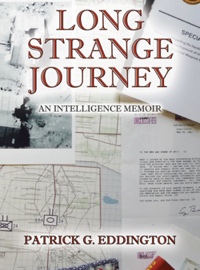Shortly after Colorado Senator Mark Udall lost his reelection bid to Rep. Cory Gardner, it began–first as conversations among civil liberties activists, then in media outlets, and finally Udall himself raised the possibility: on his way out of the Senate, he might release all or at least portions of the long CIA-stonewalled Senate Select Committee on Intelligence report into the Agency's long-infamous torture program from the Bush 43 era. The Atlantic's Conor Friedersdorf went much further, arguing that Udall should take the opportunity to release what he knows about a range of Intelligence Community (IC) misconduct. The basic theme is that in doing so, Udall would be a hero (true for many people, less so for others) and the country would get a better idea about the totality of the IC's misdeeds. It would also, in theory, reignite the faltering IC reform effort.
Would it work? History suggests the answer is probably “no”–at least not just the act of dumping politically explosive classified information onto the press in the hope of spurring changes in policy.
For those of you who are pondering this weighty issue, if you have not taken the time to watch The Most Dangerous Man In America, do so. It's the story of a government official with a conscience who made the decision to put the Pentagon's secret history of the Vietnam War into the public domain at the very time anti-war protests were rocking the nation. I'm of course talking about the legendary Daniel Ellsberg and the Pentagon Papers case.
In the documentary, Ellsberg laments–in the wake of the disclosures he made, the publicity, his prosecution and the related lawsuits–how all of his efforts did not lead his fellow Americans to demand an immediate end to the war. Nixon was reelected in a landslide. The war ground on for several more years. And only one sitting member of Congress–Senator Mike Gravel of Alaska–had the courage to read the entire Pentagon Papers into the Congressional Record to ensure they stayed in the public domain. The Nixon administration sued Gravel in federal court, with the Supreme Court ultimately deciding that the Constitution's speech and debate clause provided any House or Senate member with a legal shield for making such disclosures.
It is certainly true that other abuses of executive power came to light over the next few years–specifically, the surveillance abuses by the National Security Agency (NSA), the Central Intelligence Agency (CIA), and the Federal Bureau of Investigation (FBI). And it was those revelations that led to the creation of the Foreign Intelligence Surveillance Act (FISA) and the two Congressional intelligence oversight committees. Yet just three years after FISA became law, newly elected President Ronald Reagan signed an executive order that former State Department official John Napier Tye has alleged has allowed NSA to effectively circumvent FISA and capture virtually unlimited quantities of the overseas communications of Americans. Given the scope of the revelations by former NSA contractor Edward Snowden, Tye's allegations are entirely believeable–another argument for Udall to spill what he knows while he can do so behind the shield of Speech and Debate.
But a one-off dump of classified information–no matter how voluminous or sweeping–will likely not have the beneficial effects proponents hope for. That was the case with Ellsberg's revelations, and has thus far been the case with Snowden's. A real reform effort is not based on single actions, no matter how dramatic. They can provide the spark, but the fuel to keep the movement going and growing requires the commitment of thousands, and ultimately millions.
It's worth noting that no House or Senate member has since followed Gravel's (in my view) courageous and constitutionally necessary example. Fear of expulsion from Congress or facing “soft-on-terrorism” attack ads in the next election cycle are powerful disincentives for going down that road. But Udall's defeat means those disincentives don't apply–assuming he has no plans to run for office again. Which brings me to why I think Udall should chose another option: running for president in the 2016 Democratic primary.
To conventionally-minded Democratic strategists–the ones that just lost the Senate, that is–such an approach would seem insane. Udall just lost, not just the election but the platform that is the United States Senate, they will argue. And my response is, “Exactly”.
Udall is free to pursue his own political path. He has done more to push for real checks on the National Security State than any Democrat in either chamber, giving him a moral authority no other Democrat thinking of running for president can hope to claim. And he can still talk about the abuses that have come to light, just as he can talk about what else the American public should know and why rolling back the Surveillance State is necessary to restore our liberty and secure our economic future. If the American tech sector comes to be viewed globally as simply the corporate arm of NSA, hundreds of thousands of jobs will be lost and our technological destiny will be decided by others, not us. Udall could be that leader and messenger for a different and better path forward, but not if he takes an action that allows his opponents to dub him “Senator Snowden”.

